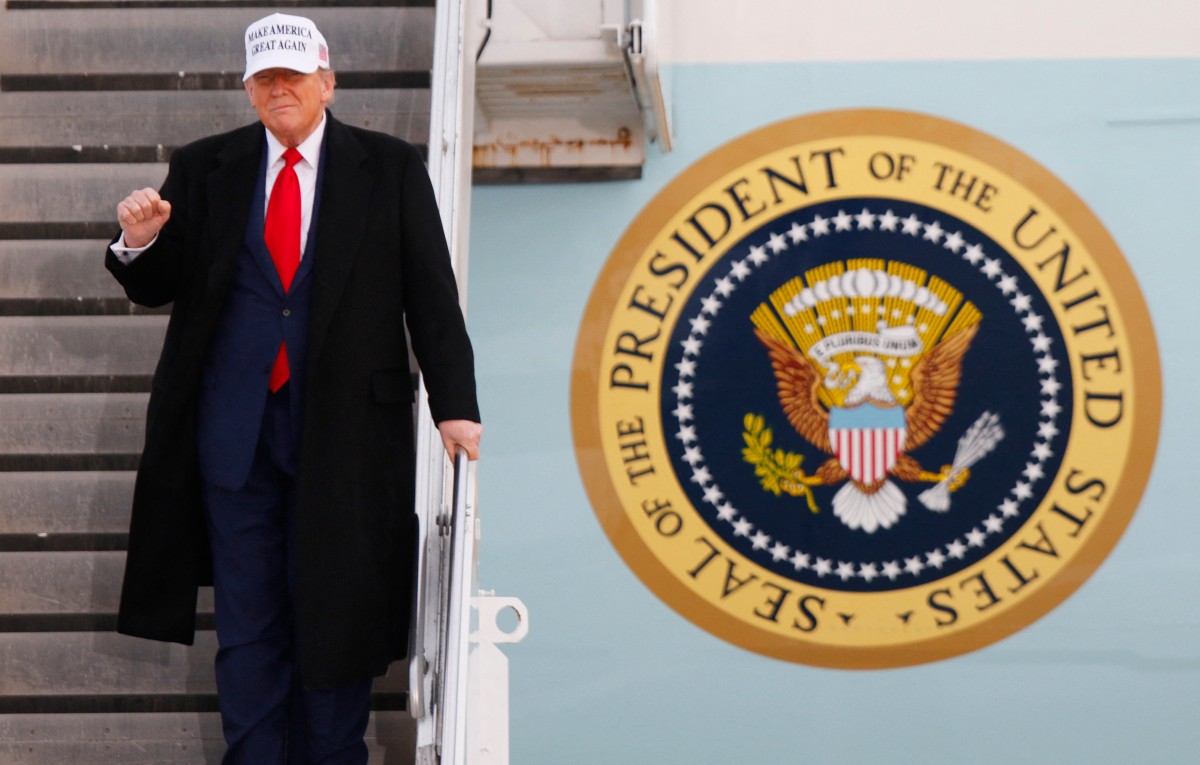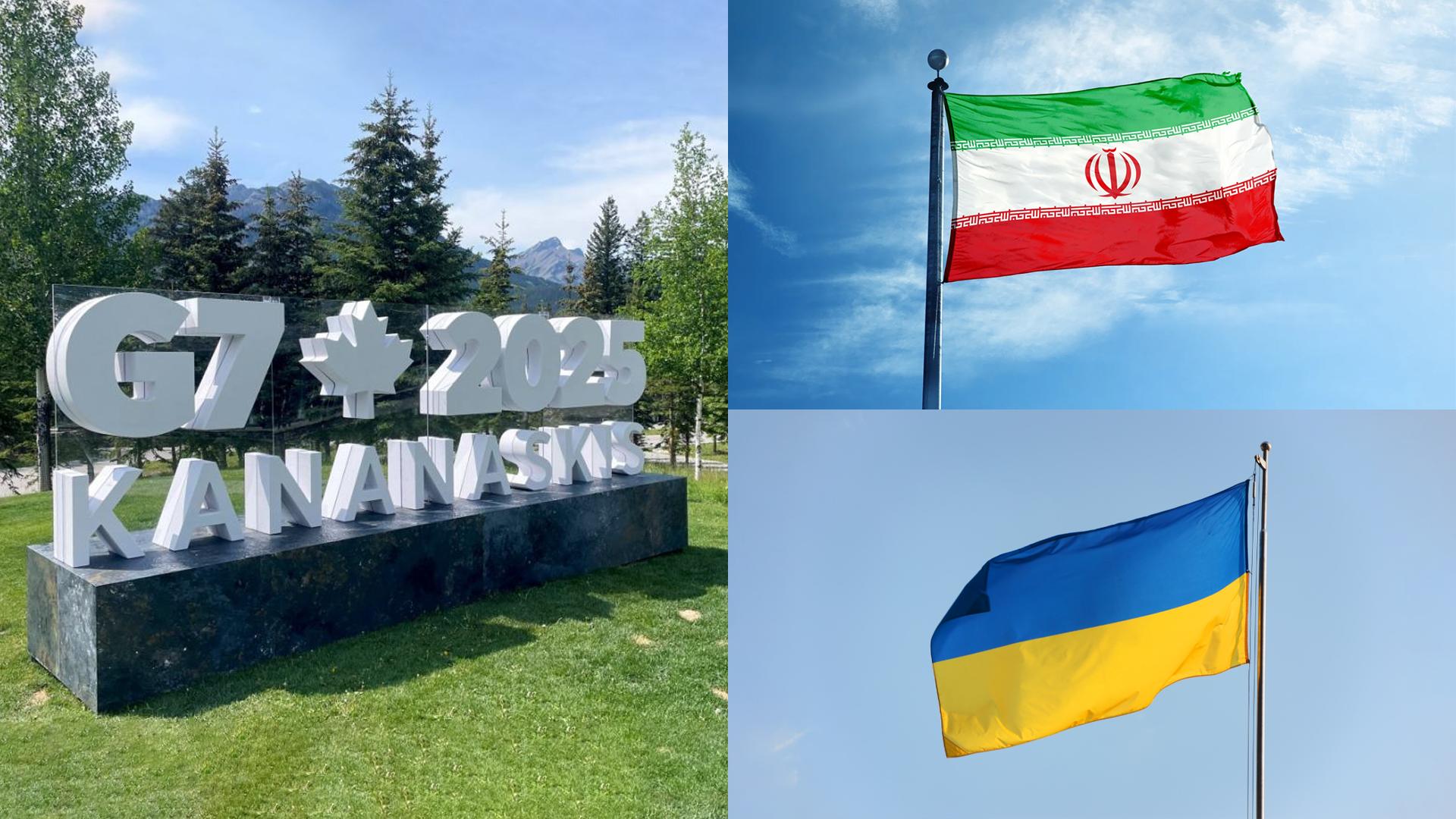
By Agence France-Presse
Group of Seven (G7) leaders, including U.S. President Donald Trump, prepared to hold talks in the Canadian Rockies this Monday, June 16, tackling issues including whether they can find common ground on an escalating conflict between Iran and Israel.
The three-day gathering in the mountain town of Kananaskis marks the return to the international diplomatic calendar for Trump, who has stunned allies by defying norms and slapping sweeping tariffs on friend and foe alike.
Canadian Prime Minister Mark Carney had designed an agenda aimed at minimizing disagreements within the club of wealthy industrial democracies—Britain, Canada, France, Germany, Italy, Japan, and the United States.
But Israel shocked the world two days before the summit with a surprise, massive military campaign against Iran. Canada is now sounding out countries about making a joint call on Israel and Iran, according to diplomats.
The statement could call for de-escalation or could simply back Israel, saying that it has a “right to defend itself” due to Iran’s contested nuclear work.
European Commission president Ursula von der Leyen told reporters that she spoke with Israeli Prime Minister Benjamin Netanyahu before the summit and agreed that Iran was to blame.
“Of course I think a negotiated solution is, in the long term, the best solution,” she said, stopping short of calling for an immediate ceasefire.
Trump has praised Israel’s strikes, noting it used U.S. weapons, even though Netanyahu defied his public calls to hold off as the United States sought a negotiated solution.
Unusually, Japan, which historically has maintained cordial ties with Iran, made a forceful break with allies in the United States and Europe when it denounced Israel’s strikes as “deeply regrettable.”
European powers have all steered clear of criticizing Israel on the Iran strikes, despite separate concern about the humanitarian situation in besieged Gaza.
French President Emmanuel Macron has called for restraint and urged Iran to re-enter talks with the United States while also blaming Tehran for escalating tensions over its nuclear program.

Visiting ’51st state’
Trump is visiting Canada despite his mockery of the United States’ northern neighbor, which he has said would be better off as the 51st state.
Tensions have eased since Carney, a former central banker known more for his competence than pizzazz, took over in March from Justin Trudeau, an erstwhile star on the global stage whom Trump made no secret of disliking.
When Trump last visited Canada for a G7 summit in 2018, he bolted out early and tweeted insults about Trudeau from Air Force One, disassociating the United States from the final statement.
But deep tensions remain. Trump, seeking a radical transformation of a global economic order centered on free trade, has vowed to slap sweeping tariffs on U.S. friends and foes alike on July 9, a deadline that he postponed once.
Von der Leyen, who spoke to Trump by telephone on June 14, voiced hope that the Europeans can reach a solution and offered veiled criticism of the U.S. approach.
“Let us keep trade between us fair, predictable, and open. All of us need to avoid protectionism,” she said.

Linking Ukraine and Iran
Von der Leyen also called for the G7 to link the crises in Iran and Ukraine, which has been hit by drones sold to Russia by Tehran’s cleric-run state.
“The same type of Iranian-designed and -made drones and ballistic missiles are indiscriminately hitting cities in Ukraine and in Israel. As such, these threats need to be addressed together,” she said.
Ukrainian President Volodymyr Zelenskyy is among the invited guests and hopes to speak to Trump, who publicly derided him when they met at the White House on February 28.
Trump had hoped to force Ukraine into a quick deal with Russia, but he has grown frustrated after Russian President Vladimir Putin refused U.S.-led appeals for at least a temporary truce. He spoke by telephone with Putin on June 14, both about the Israel-Iran conflict and Ukraine.
Macron, however, cast doubt on Putin serving as a Middle East mediator. The French President headed to Kananaskis after stopping in Greenland, where he denounced Trump’s threats to seize the Danish autonomous territory.
“That’s not what allies do,” he said.
For his part, Trump arrived at the summit after attending a military parade in Washington that coincided with his birthday, prompting nationwide protests over steps seen as increasingly authoritarian.
